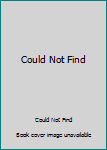Math Safari Lesson Book Set 2 Addition Fun!
Select Format
Select Condition 
More by HALLIDAY
Book Overview
No Synopsis Available.
Format:Spiral-bound
Language:English
ISBN:0886799856
ISBN13:9780886799854
Release Date:January 1993
Publisher:Math Safari
Length:40 Pages
Weight:0.75 lbs.
Customer Reviews
6 customer ratings | 5 reviews
There are currently no reviews. Be the first to review this work.






























